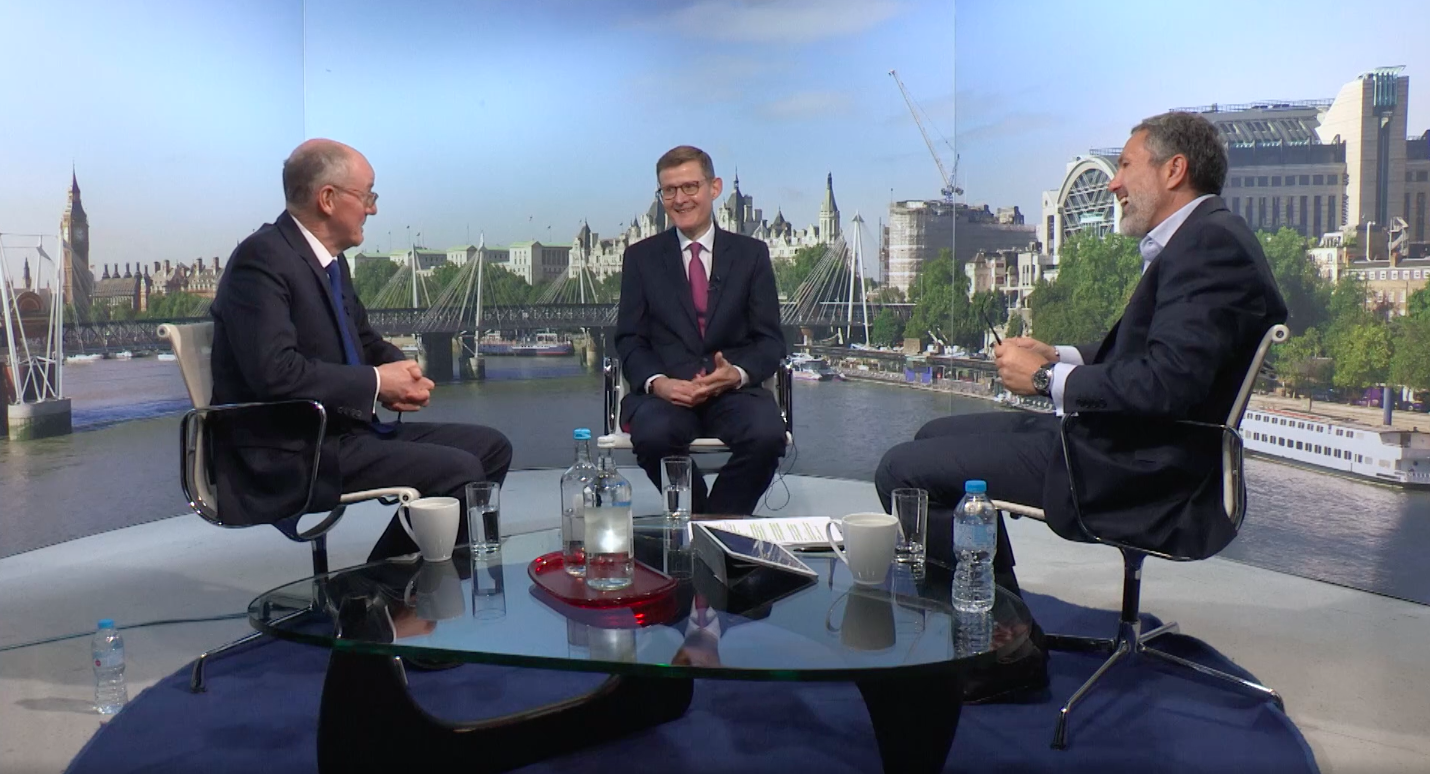How do Business Leaders Cope with Stress in a Pressured Environment?
On the 12th of January, 87% founder Richard Glynn sat down with Michael Simmonds, Co-Chief Executive at Yonder Consulting, and Rt Hon Nick Gibb, Conservative MP for Bognor Regis and Littlehampton, for an intimate discussion about mental wellbeing.
At 87%, we believe in destigmatising mental health; it’s important to talk openly and honestly about how we feel in order to properly process our thoughts and emotions.
This is especially true for those in leadership positions – it’s essential to learn how to cope with stress, even in the most pressured environments.
We’ve gathered some key talking points from the webinar in this blog, covering values, personal motivations, coping with anxiety and stress and leading a business.
Watch the full webinar.
How do you cope with anxieties?
“Running helps, a lot,” Michael added after a moment of pensive thought.
Research shows that improving your physical health can have a distinct positive impact on your mental health. Exercise and remaining active releases feel-good chemicals (endorphins). This doesn’t mean that you necessarily need to go for a run, but simple activities like gardening can have a similar effect.
“The single best way is having processes and routines. I get most anxious when I feel that my inbox is out of control.”
Taking time to organise yourself a little better can have myriad benefits. It’s easy to allow work to get on top of us, and that can lead to chaotic, disorganised lives. We should recognise that spending half a day sorting things out and putting everything in order of priority is not a waste of time; it’s a fantastic way of reducing anxiety.
Our brains innately want to have things in order, and many people, like Michael, need to keep everything in check in order to cope with stress.
How do you deal with conflict resolution?
“I was always open to challenges. If there’s a fact, I’ll openly change my view,” started Nick, emphasising the importance of being “passionate and sincere about your views”.
Whether you agree with someone or not, an open and civil discourse is the best way to deal with conflict. As our culture becomes more technologically open, we are being exposed to a wider range of views.
It’s important that we don’t immediately shut out any ideas that we disagree with. While Nick prefers to tackle issues immediately, Michael has other ideas…
“I have a good relationship with ambiguity,” said Michael Simmonds, “I think that being able to navigate your way through different people’s positions without you taking a firm view is a useful tool when trying to build a business.”
While some people need to deal with things as and when they happen, others prefer to take the time to process information before resolving any conflict. Being kind and willing to embrace both kinds of people is the key to resolving conflicts amicably.
How do you structure a permissive mental wellbeing environment?
Giving your people individual legitimacy and the platform to be themselves is incredibly important in any organisation.
“Finding a way in a business to talk about wellbeing that is comfortable for everybody, and isn’t just one view of wellbeing, is really hard,” suggests Michael, adding the example that some people find cognitive behavioural therapy useful, while others find it hard to engage with. Just like others use mindfulness to process their thoughts, their peers might never want to give it a try.
There is no one solution to improving everyone’s mental wellbeing, which is why it’s so important to implement a comprehensive, tailored mental wellbeing strategy in any organisation; it’s all about flexibility and interpersonal relationships, allowing your people to be themselves and to suggest what works best for them.
“This is why it’s so important to gather data,” finished Michael. Without wellbeing data, you can’t know how your people really feel.
“Give a bit more of yourself”
Create a business where people can openly talk about stuff if they want. Nick and Michael suggest that, as a leader, you should give a little more of yourself – show your people who you are and invite them to do the same.
“If you’re authentic and you listen, that’s where your kindness comes from.” – Michael Simmonds
From their experience, people who lead by example get more out of their staff; your openness provides a two-way street.
Watch the full webinar today
This only touches on a small percentage of what Richard, Michael and Nick discussed in their conversation.
For further insight, watch the full webinar.





